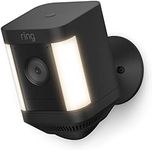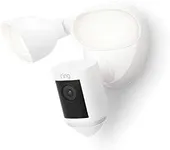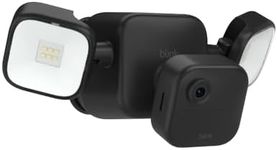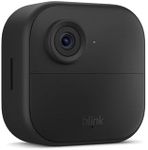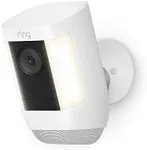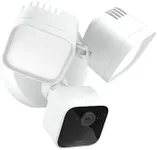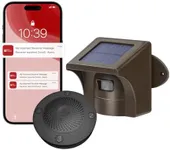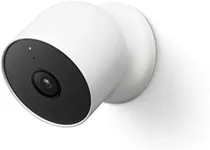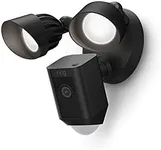Buying Guide for the Best Driveway Alarm With Camera
Choosing the right driveway alarm with a camera can significantly enhance the security of your property. These devices not only alert you to the presence of visitors or intruders but also provide visual confirmation, which can be crucial for identifying potential threats. To make an informed decision, it's important to understand the key specifications and how they align with your specific needs. Here are the main factors to consider when selecting a driveway alarm with a camera.Camera ResolutionCamera resolution refers to the clarity and detail of the images and videos captured by the camera. Higher resolution cameras provide clearer and more detailed footage, which can be crucial for identifying faces and license plates. Common resolutions include 720p (HD), 1080p (Full HD), and 4K (Ultra HD). If you need detailed footage for security purposes, opt for at least 1080p. For general monitoring, 720p may suffice.
Detection RangeDetection range is the distance at which the alarm can detect movement. This is important because it determines how far from the sensor the alarm will be triggered. Detection ranges can vary from a few feet to several hundred feet. If you have a long driveway or need to monitor a large area, choose a device with a longer detection range. For smaller areas, a shorter range will be adequate.
Field of ViewThe field of view (FOV) is the extent of the observable area that the camera can capture. A wider FOV means the camera can cover more area, which is useful for monitoring large driveways or multiple entry points. FOV is typically measured in degrees, with common values ranging from 90° to 180°. For comprehensive coverage, a wider FOV is preferable. For focused monitoring, a narrower FOV may be sufficient.
Night VisionNight vision capability allows the camera to capture clear footage in low-light or no-light conditions. This is crucial for 24/7 monitoring, especially in areas without adequate lighting. Night vision is typically achieved through infrared (IR) LEDs. When choosing a device, consider the range of the night vision, which can vary from a few feet to over 100 feet. Ensure the night vision range matches the area you need to monitor at night.
Wireless vs. WiredDriveway alarms with cameras can be either wireless or wired. Wireless systems are easier to install and offer more flexibility in terms of placement, but they may require regular battery changes or recharging. Wired systems, on the other hand, provide a more stable connection and do not require battery maintenance, but installation can be more complex. Choose a wireless system for ease of installation and flexibility, or a wired system for reliability and minimal maintenance.
Smart FeaturesSmart features include capabilities like mobile app integration, real-time alerts, and cloud storage. These features enhance the functionality of the driveway alarm by allowing you to monitor and control the system remotely. If you want to receive instant notifications on your smartphone or access footage from anywhere, look for a device with robust smart features. For basic monitoring, these features may not be necessary.
Weather ResistanceWeather resistance is crucial for outdoor devices exposed to the elements. Look for cameras and sensors that are rated for water and dust resistance, typically indicated by an IP rating (e.g., IP65, IP67). This ensures the device can withstand rain, snow, and dust, providing reliable performance in various weather conditions. If you live in an area with harsh weather, a higher IP rating is recommended.
